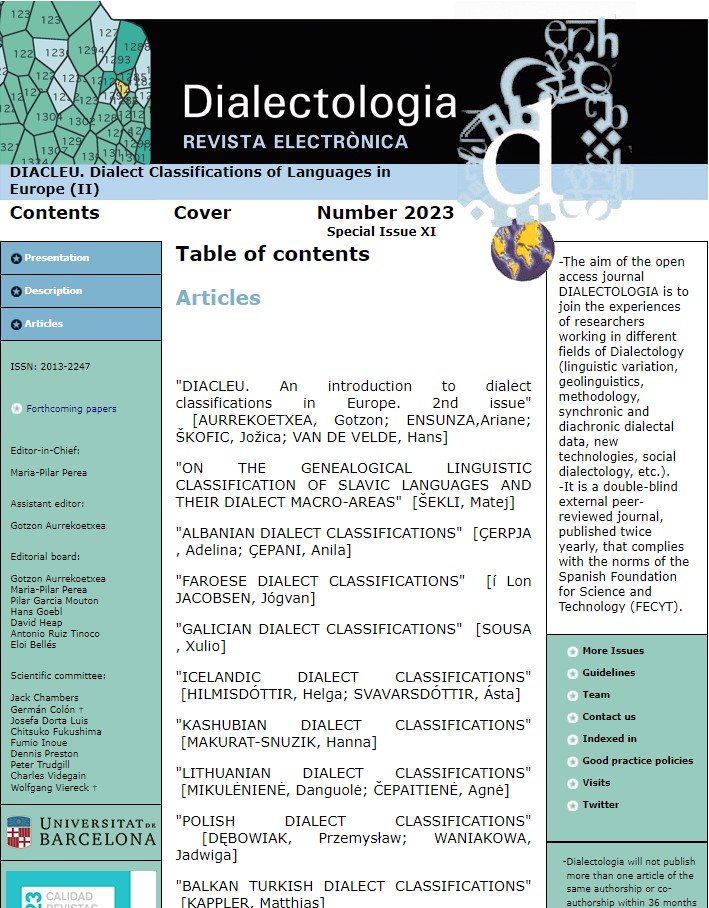On the genealogical linguistic classification of slavic languages and their dialect macro-areas
Article Sidebar

Main Article Content
The contribution aims to illustrate the framework of genealogical linguistic classification of Slavic/Slavonic languages and their dialect macro-areas as mirrored in the standard comprehensive surveys presenting geographical linguistic variation of Slavic. First, the theory and the methodology of the three main branches of linguistic science are presented, viz. genealogical (or genetic) linguistics, typological linguistics, and sociolinguistics, as well as the genealogical and the sociolinguistic classification of the Slavic languages. Second, the linguistic criteria of linguistic genealogy are discussed, whereby the extra-linguistic factors current in some other classifications are critically assessed using the examples from Slavic. Finally, a few case studies in the genealogical linguistic interpretation of Slavic are adduced, namely the dialectal delimitation of Eastern South Slavic (i.e. Macedonian vs. Bulgarian), Central South Slavic as a linguistic area, East Slavic languages, Kashubian in relation to Polish, and Sorbian in the context of West Slavic.